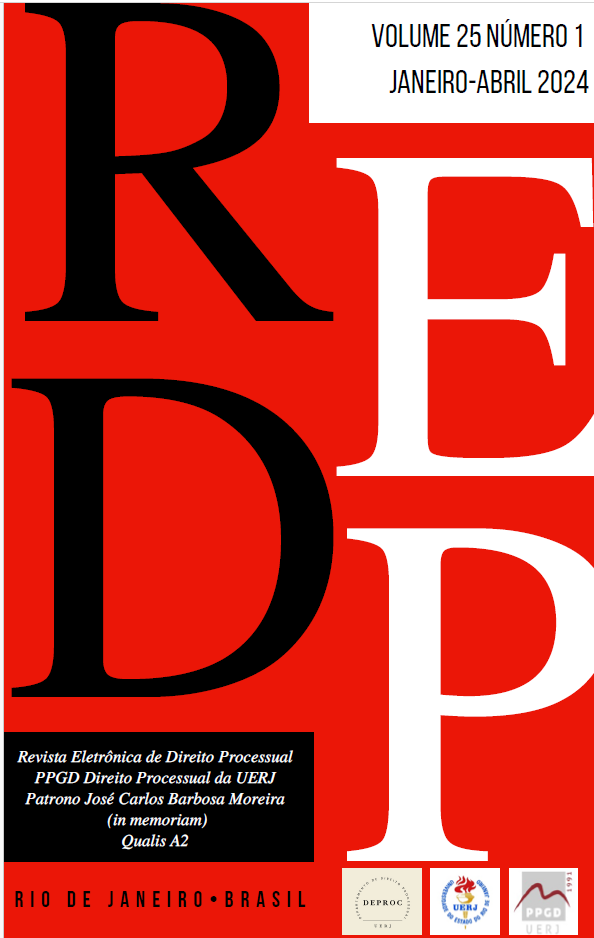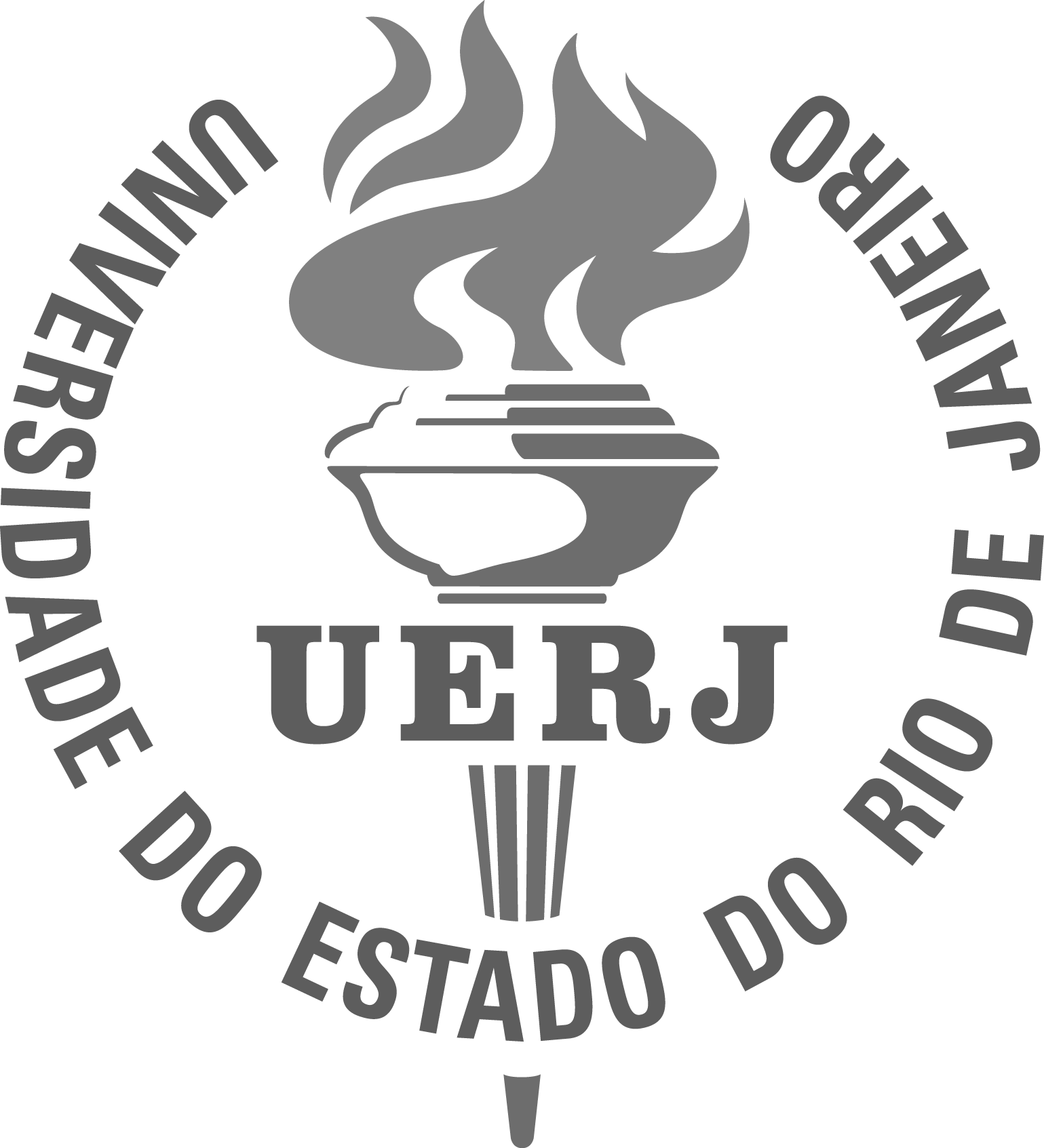DURAÇÃO RAZOÁVEL DO PROCESSO E PADRONIZAÇÃO DAS DECISÕES JUDICIAIS: UMA ANÁLISE CRÍTICA
DOI:
https://doi.org/10.12957/redp.2024.81909Abstract
The focus of this article is a critical analysis of the regularity of judicial decisions, via mandatory precedents, introduced in our legal system. It aims to analyze whether the precedents themselves were brought to our legal system or just a technique for making consistent decisions, as well as identifying the main flaws in this new judgment pattern. A qualitative approach was used, given that the results were identified through an evaluative benchmark and, therefore, not numerical. The research was descriptive using deductive reasoning, considering that, using the concept of what effectively is a judgment based on precedents, it perused to specifically analyse whether the precedent introduced in our legal system corresponds to what has been traditionally used in the legal system. "common law" and what are its main flaws verified in the implemented paradigm. As for the policies, the investigation was bibliographical to answer to the following research problem: were precedents brought to our legal system or just a technique for standardizing decisions and what are the main flaws in this new judgment paradigm? It was found that the crisis in the Judiciary led to legislative reforms that culminated in the publication of EC 45/04. It was found that, gradually, the consistency of judicial decisions was being inserted in our legal system, resulting in the introduction of a compulsory precedent (CPC, art. 927). It has also demonstrate that our paradigm of precedent is not consistent with the existing precedents in the common law system, being just an idea of precedent. It was noted that this organisation of precedents has not been, in practice, applied correctly for a number os reasons, such as: the use of precedents has been automatic and, not rarely, based only on the mere invocation of previous judgments, without factual analysis of the concrete case that made stronger the paradigm decisions and without a real comparison with the facts of the case , that was judged based only on the precedent; meaning , according to part of this doctrine, unconstitutionality of the norms that created binding effectiveness of precedent and non-binding precedents with no constitutional provision; the analysis of the reasons for deciding ("ratio decidendi") is often dimished, due to the degree of abstraction existing in binding precedents, and also due to the difficulty of distinguishing, in the concrete case, the "ratio decidendi" of the reasoning "obter dicta" etc.
Downloads
Published
How to Cite
Issue
Section
License
Copyright (c) 2024 Marco Antonio Rodrigues, Leonardo Faria Schenk, Jeverson Luiz Quintieri

This work is licensed under a Creative Commons Attribution 4.0 International License.
Todos os artigos publicados na Revista Eletrônica de Direito Processual (REDP) (Departamento de Direito Processual, Universidade do Estado do Rio de Janeiro, Brasil) são licenciados por meio de uma Licença Creative Commons - Atribuição 4.0 Internacional (CC BY 4.0).
Os autores retêm os direitos autorais de seu artigo e concordam em licenciar seu trabalho com a licença CC BY 4.0, aceitando assim os termos e condições específicos desta licença disponíveis no seguinte website: https://creativecommons.org/licenses/by/4.0/legalcode.
- Os autores concedem à REDP o direito de primeira publicação, de se identificar como publicadora original do trabalho e concedem à revista uma licença de direitos não exclusivos para utilizar o trabalho das seguintes formas: Reproduzir, vender e distribuir cópias eletrônicas ou impressas do manuscrito como um todo, de partes específicas do manuscrito e de suas traduções para qualquer idioma;
- O uso do artigo por terceiros é livre, contanto que a integridade da publicação seja mantida e seus autores originais, periódico de primeira publicação e detalhes de citação sejam identificados.
Dentro dos termos da licença, os autores podem entrar em acordos contratuais adicionais separados para a distribuição não exclusiva da versão publicada do trabalho na revista.
Copyright and Licensing
All articles published in the Procedural Law Electronic Review (REDP) (Department of Procedural Law, State University of Rio de Janeiro, Brazil) are licensed under a Creative Commons License - Attribution 4.0 International (CC BY 4.0).
- Authors retain copyright to their article and agree to license their work under the CC BY 4.0 license, thereby accepting the specific terms and conditions of this license available at the following website: https://creativecommons.org/licenses/by/4.0/ legal code.
- Authors grant REDP the right of first publication, to identify itself as the original publisher of the work, and grant the journal a non-exclusive license to use the work in the following ways: Reproduce, sell and distribute electronic or printed copies of the manuscript as a whole, of specific parts of the manuscript and its translations into any language;
- Use of the article by third parties is free, as long as the integrity of the publication is maintained and its original authors, first publication journal, and citation details are identified.
Within the terms of the license, authors may enter into separate additional contractual agreements for the non-exclusive distribution of the published version of the work in the journal.






